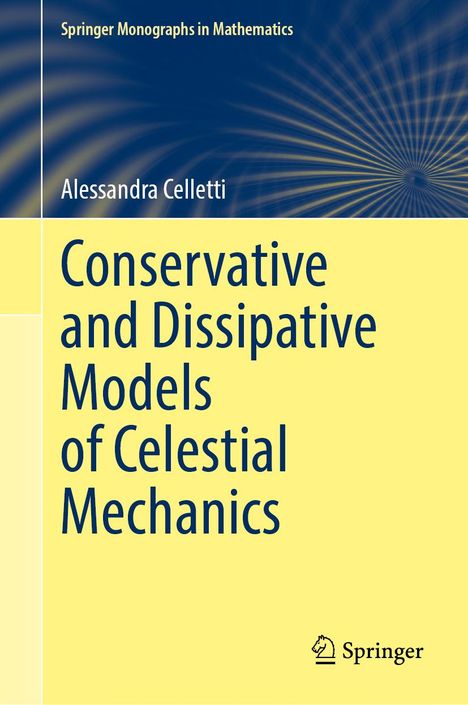Alessandra Celletti: Conservative and Dissipative Models of Celestial Mechanics, Gebunden
Conservative and Dissipative Models of Celestial Mechanics
(soweit verfügbar beim Lieferanten)
- Verlag:
- Springer-Verlag GmbH, 10/2025
- Einband:
- Gebunden
- Sprache:
- Englisch
- ISBN-13:
- 9783032018656
- Artikelnummer:
- 12343986
- Umfang:
- 274 Seiten
- Sonstiges:
- XXI, 274 p. 28 illus., 21 illus. in color.
- Erscheinungstermin:
- 18.10.2025
- Serie:
- Springer Monographs in Mathematics
- Hinweis
-
Achtung: Artikel ist nicht in deutscher Sprache!
Klappentext
This book is devoted to the presentation and discussion of some models of relevance in Celestial Mechanics and Astrodynamics. The motions of celestial bodies, either natural or artificial, are governed by conservative forces, like the gravitational attraction that preserve the total energy and by dissipative forces, like the tidal torque, Stokes drag, and the Poynting-Robertson effect. The basic idea of this book is to describe in each chapter a model in the conservative setting, providing its main features, and then to extend the model by including dissipative forces. In fact, the dynamics of many objects of the Solar system is well described, in a first approximation, by a conservative model; however, in the long term, dissipative effects may play a relevant role, for example, in shaping the dynamics and affecting the evolutionary history of the Solar system.
Motivated by this observation, in this book, different models are presented and their main features are described in the conservative setting, but dissipative contributions, pertinent to the model, are added as well, which may lead to a completely different dynamics on long time scales. Conservative systems have a larger variety of motions, e. g., the dynamics can take place on rotational tori, librational motions, periodic orbits, and chaotic trajectories. On the contrary, dissipative systems admit a less rich dynamics, since the dissipation forces the motion to take place on a few attractors, e. g., rotational tori, periodic orbits or strange attractors. Besides, dissipative systems often need extra parameters to compensate for the loss of energy and to allow the dynamics to take place on non-trivial attractors.
The book is addressed to graduate students and researchers interested in models of Celestial Mechanics and Astrodynamics.



